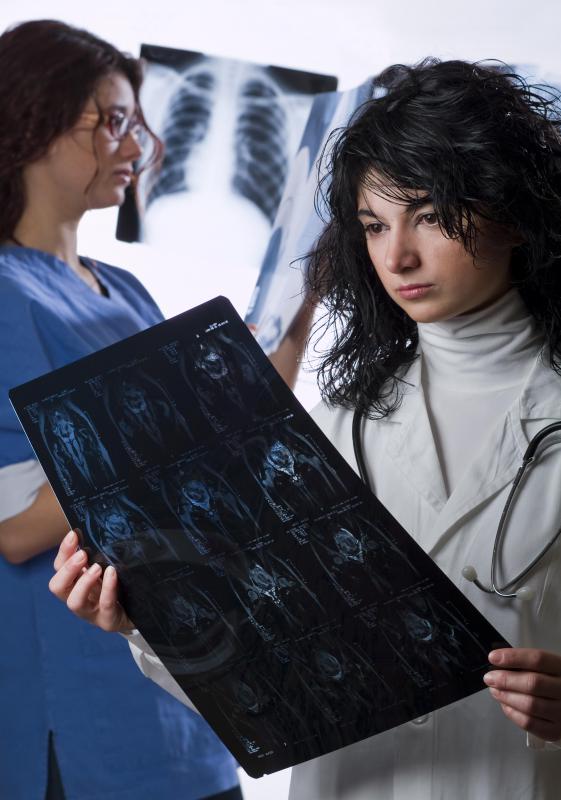At TheHealthBoard, we're committed to delivering accurate, trustworthy information. Our expert-authored content is rigorously fact-checked and sourced from credible authorities. Discover how we uphold the highest standards in providing you with reliable knowledge.
What Are the Risks of Angiograms?
The risks of angiograms include damage to the blood vessels, allergic reactions to tracer dyes, and bleeding at the site of injections and catheter insertions. Angiograms are invasive, and while the risks are low, they cannot be completely eliminated. Some patients may be more vulnerable to complications like kidney damage after an angiogram. Before proceeding with the test, it is important to review medical history and discuss concerns with a doctor. Patients can also ask why the test is being recommended and if there are any alternatives available.
Some of the risks of angiograms surround injections and catheter insertions. These can expose the patient to the risk of infection, pain, bleeding, and bruising. In rare cases, advancing a catheter through the blood vessels can dislodge plaques and clots. These may travel to the heart, lungs, or intestinal tract and cause an infarction, where part of the tissue dies because a blockage prevents circulation. It is also possible to rip or tear the blood vessels, especially if they are fragile.

The tracer dyes used in an angiogram can also be a cause for concern. Some patients experience an allergic reaction to them and may develop skin irritation, difficulty breathing, and other symptoms. In patients with existing kidney disease, the risks of angiograms can also include more kidney problems, as the body may not be able to eliminate the tracer dye completely when the kidneys are stressed.

With coronary angiograms, there is also a risk of cardiac complications like arrhythmias or edema in the cardial sac. The technician will work to manage these risks, but if a patient already has an unstable heart, they may be difficult to avoid entirely. The risks of angiograms also include radiation. Although radiation levels are low with this test, the patient will be exposed to some radiation, and this may be an issue if the patient needs multiple medical imaging studies with radiation.

Usually, the benefits of an angiogram outweigh the risks. This test can provide important information about blood vessel health and may assist a doctor with a procedure to repair or open the blood vessels. Patients should consider the risks of angiograms before consenting to the test and can ask for specific information if they have concerns. A doctor can discuss any issues that might be a special cause for worry in a patient and can also provide information about how angiogram complications would be managed if they occurred.
AS FEATURED ON:
AS FEATURED ON:














Discuss this Article
Post your comments